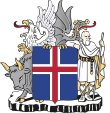
General elections were held in the Netherlands on 3 July 1918. They were the first elections held after a series of reforms that introduced universal male suffrage and pure proportional representation, replacing the previous two-round system in single member constituencies. This change was known as the Pacification of 1917, which also included the introduction of state financing of religious schools, and led to the start of consociational democracy.

General elections were held in the Netherlands on 5 July 1922. They were the first elections held under universal suffrage, which became reality after the acceptance of a proposal by Henri Marchant in 1919 that gave women full voting rights. Almost all major parties had a woman elected. The number of female representatives increased from one to seven. Only the Anti-Revolutionary Party principally excluded women from the House of Representatives. Another amendment to the electoral law increased the electoral threshold from 0.5% to 0.75%, after six parties had won seats with less than 0.75% of the vote in the previous elections.

Parliamentary elections were held in Croatia on 29 October 1995 to elect the 127 members of the Chamber of Representatives. The election was held in conjunction with special elections for Zagreb City Assembly, which resulted in the Zagreb Crisis.

Parliamentary elections were held in Russia on 12 December 1993. They were the first parliamentary elections in post-Soviet Russia and the only time to the Federation Council, with future members appointed by provincial legislatures and governors.
Parliamentary elections were held in Iceland on 30 June 1946. The Independence Party remained the largest party in the Lower House of the Althing, winning 13 of the 35 seats.
Parliamentary elections were held in Iceland on 23 and 24 October 1949. The Independence Party remained the largest party in the Lower House of the Althing, winning 13 of the 35 seats.
Parliamentary elections were held in Iceland on 28 June 1953. The Independence Party remained the largest party in the Lower House of the Althing, winning 14 of the 35 seats.
Parliamentary elections were held in Iceland on 24 June 1956. The Independence Party remained the largest party in the Lower House of the Althing, winning 13 of the 35 seats.
Parliamentary elections were held in Iceland on 28 June 1959. The Independence Party and the Progressive Party both won 13 seats in the Lower House of the Althing. Following the tie, electoral reforms were introduced and early elections were held in October.
Early parliamentary elections were held in Iceland on 25 and 26 October 1959. Following the electoral reforms made after the June elections, the Independence Party won 16 of the 40 seats in the Lower House of the Althing.
Parliamentary elections were held in Iceland on 25 April 1987. The Independence Party remained the largest party in the Lower House of the Althing, winning 12 of the 42 seats.
General elections were held in Belgium on 16 November 1919. Although the Belgian Labour Party received the most votes in the Chamber of Representatives elections, the Catholic Party remained the largest party in both the Chamber and the Senate. Voter turnout was 88.5% in the Chamber elections.

Full general elections were held in Belgium on 14 October 1894, with run-off elections held on 21 October 1894.
Parliamentary elections were held in Iceland on 27 October 1923. Voters elected all 28 seats in the Lower House of the Althing and eight of the fourteen seats in Upper House. The Citizens' Party, a loose collection of conservatives, emerged as the largest party in the Lower House, winning 16 of the 28 seats.
Parliamentary elections were held in Iceland on 24 June 1934. They were the first held after reforms to the electoral system that increased the number of seats in the Lower House from 28 to 33 and ensured that all members of the Althing were elected at the same election. The Independence Party emerged as the largest party in the Lower House, winning 14 of the 33 seats.
Parliamentary elections were held in Iceland on 5 July 1942. Although the Independence Party won a plurality of votes, the Progressive Party remained as the largest party in the Lower House of the Althing, winning 14 of the 33 seats.

General elections were held in Liechtenstein on 11 March 1918, with a second round on 18 March. They were the first elections held in the country contested by political parties, as the Christian-Social People's Party and Progressive Citizens' Party had been founded that year. The Progressive Citizens' Party emerged as the largest in the Landtag, winning seven of the 12 elected seats.

Constituent Assembly elections were held in Portugal on 28 May 1911, following a coup in October 1910. The result was a victory for the Portuguese Republican Party, which won 229 of the 234 seats.
General elections were held in Romania in June 1939. The Chamber of Deputies was elected on 1 June, and the Senate on the following day. They were the first elections since the introduction of the royal dictatorship of King Carol II under the 1938 constitution. Voters were presented with a single list from the National Renaissance Front, which had been the only legally permitted party in Romania since December.

Federal elections were held in Switzerland on 27 October 1872. The Radical Left remained the largest group in the National Council.







